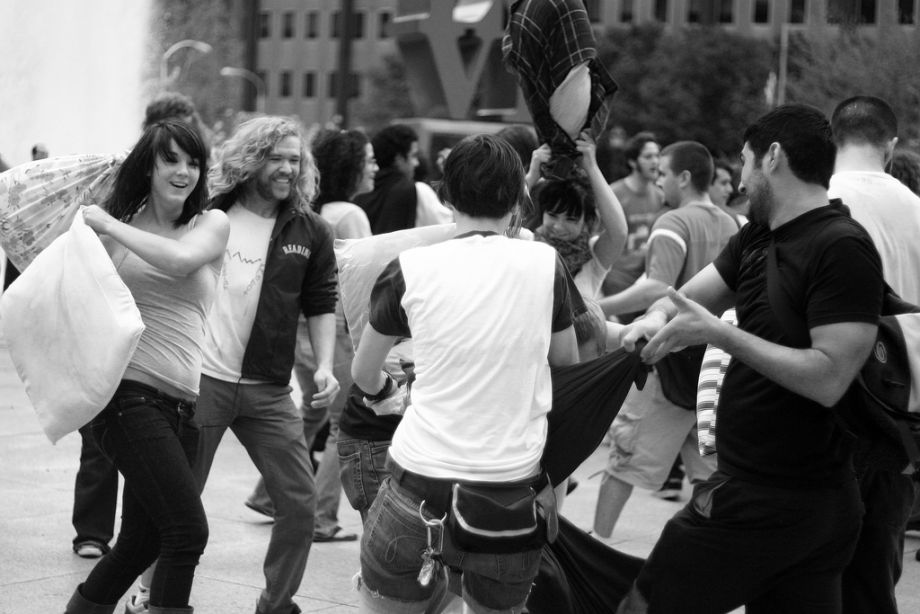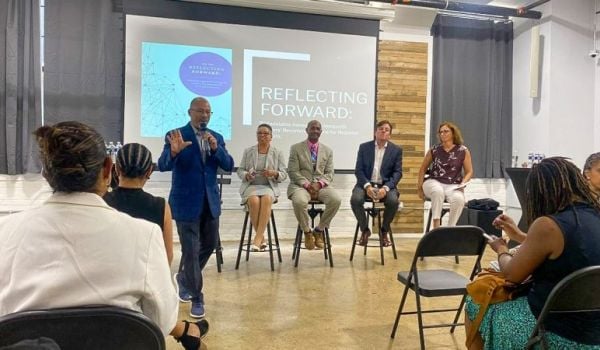The flash mobs that have sprouted in Philadelphia over the past year present a fascinating paradox: the city’s presumably most disadvantaged youth is united en masse, but for no purpose. Last weekend hundreds of black teenagers gathered on an otherwise unremarkable strip of South Street in Center City because they got a text, a tweet or a Facebook prod. As an unidentified youth told the Philadelphia Inquirer, “Some people call,” he said. “They tell you to come down, so you come down.” Listen closely to that quote and you can hear the teen’s the poor ability to understand.
When hundreds of people get together on a city street, I still think of a time when people gathered in protest – the 1960s. Back then, the spastically changing culture caused Bob Dylan to sing, “Something is happening here/ but you don’t know what it is.” The “you” he mocked were the old fogies who couldn’t parse the new pop culture. The problem is that today, the “you” is the youth itself who don’t know what they’re doing.
I witnessed the latest flash mob from my rowhouse, just one block north of the intersection of 13th and South Street where shots rang out but didn’t hit anyone. The aimlessness of the kids on the street was palpable — and maddening. Helicopters roared and police sirens wailed alerting all of Center City to the urgency of the situation; meanwhile all you could see were some well-dressed girls and guys piling in and out what must have been one of their parent’s minivans and SUVs. Indeed, the press has been quick to assume that these are angry kids from the ghetto, interested in reinstating their right to Center City. The real impression they gave was just of hundreds of kids standing on the corner.
If these flash mobs show anything, it’s that hundreds of black teenagers can be effortlessly mobilized and create an impact —maybe they’re not as disenfranchised as everyone thinks, maybe they’re not on the wrong side of the digital divide. How strange then that they are fully aware of their group’s power and yet totally uninterested in leveraging that power for their own benefit. Flash mobs evolved in a sense out of boredom and a kind of carefree anarchy. But as I watched the kids outside, I wanted to yell: Rally for a cheaper college education! For increased public transportation! For cleaner drinking water! But don’t just stand there. Am I getting old and out of touch?
Philadelphia’s police department has been quick to respond, proposing a curfew or the elimination of free train passes for kids in the evening; they’re even ready to call up the FBI to infiltrate social networks in order to disrupt this group. But these changes won’t solve the culture of meaninglessness and disruption that pervades this group (and whether it’s worth trying to change that part of teenage life should still be up for debate). What can be changed is what happens when pointlessness is mixed with mob behavior. We now know that this group can make a difference — why can’t it be one for a better Philadelphia?

Diana Lind is the former executive director and editor in chief of Next City.
















